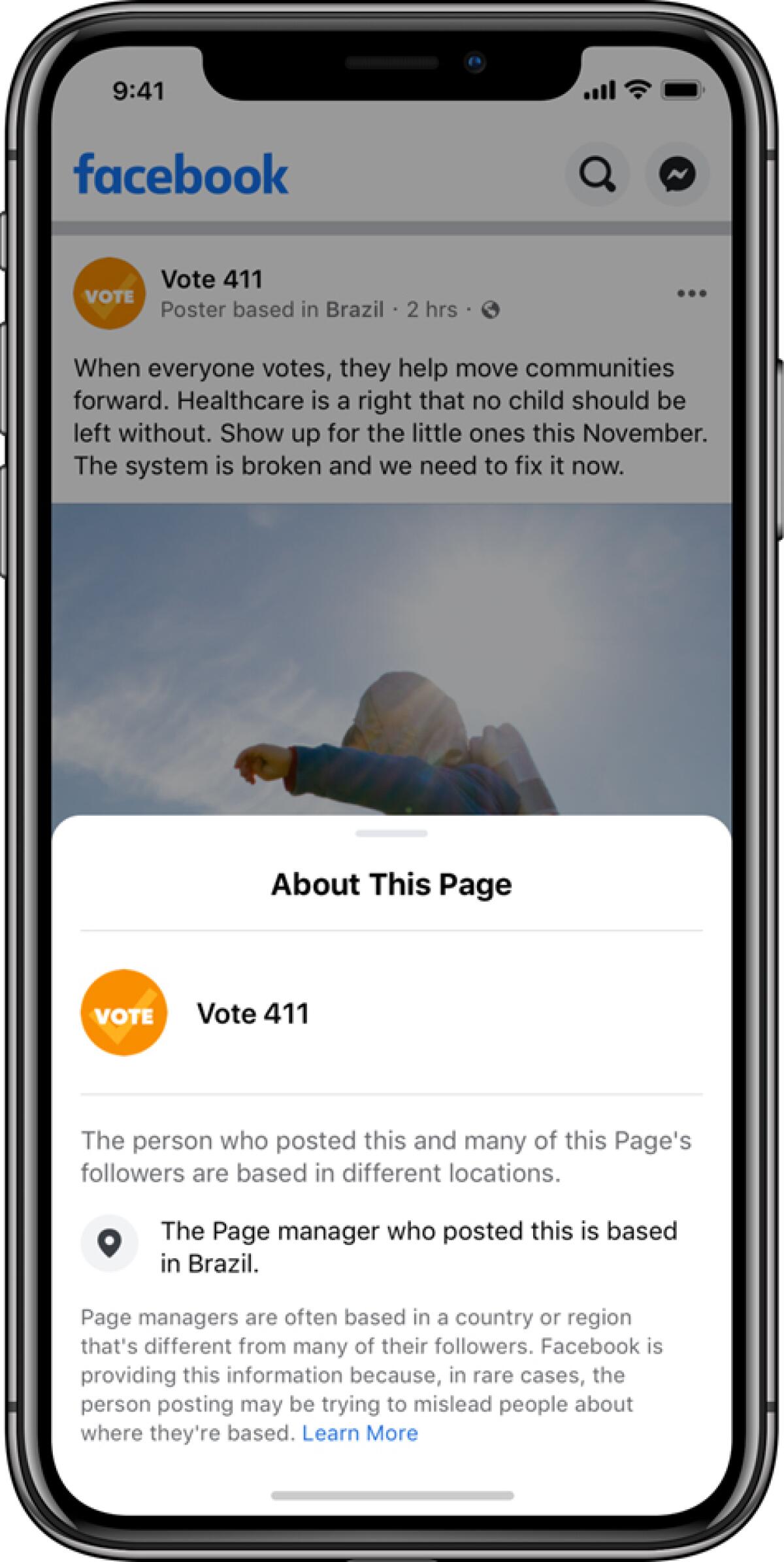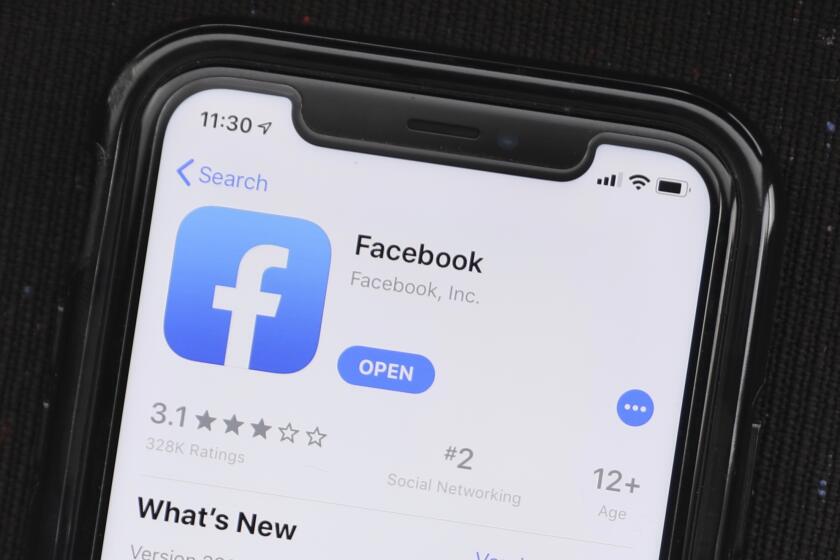Targeting meddlers, Facebook plans to label national origin of some political posts

OAKLAND, Calif. â Facebook said it will label some election-related posts with their geographic origin in an attempt to curb political misinformation by foreign-based pages that mimic legitimate groups and political parties.
The new policy will apply to popular election-related pages and will stamp every post they make on Facebook and Instagram with its origin. For instance, an Instagram account targeting U.S. voters but based in Brazil will have every post labeled with âBased in Brazil.â Users then can swipe to find out more information about the account.
Itâs the social networkâs latest attempt to fight election-related misinformation. Russia and other countries have been using social media to try to influence political discourse in the U.S. and elsewhere, often by masquerading as local interest groups.
Facebook will initially target pages based outside of the U.S. that reach a large number of people inside the U.S. The labels, the company says, will help people âgauge the reliability and authenticityâ of what they see.
Although the labels add a new layer of information â and one users wonât have to click to find â itâs unlikely to help with more insidious attempts to influence the November presidential election and sow political discord in the U.S.
Last fall, for instance, Facebook removed dozens of pages and accounts that purported to be Americans focused on U.S. politics, but which actually originated in Iran and Russia. This March, meanwhile, both Twitter and Facebook announced takedowns of sophisticated foreign operations showing that showed Russian trolls outsourcing election interference efforts to countries in West Africa.
Facebook said it will soon let users know if they âliked,â reacted to or commented on posts with harmful misinformation about the coronavirus.
More to Read
Get the L.A. Times Politics newsletter
Deeply reported insights into legislation, politics and policy from Sacramento, Washington and beyond. In your inbox three times per week.
You may occasionally receive promotional content from the Los Angeles Times.












